How to Plan an Eco-friendly Wedding: 10 Green Ideas for Baraat, Decor, Food & More
Looking for ideas for an ecofriendly wedding? From green decor and food to wedding trousseau and baraat, here's how.
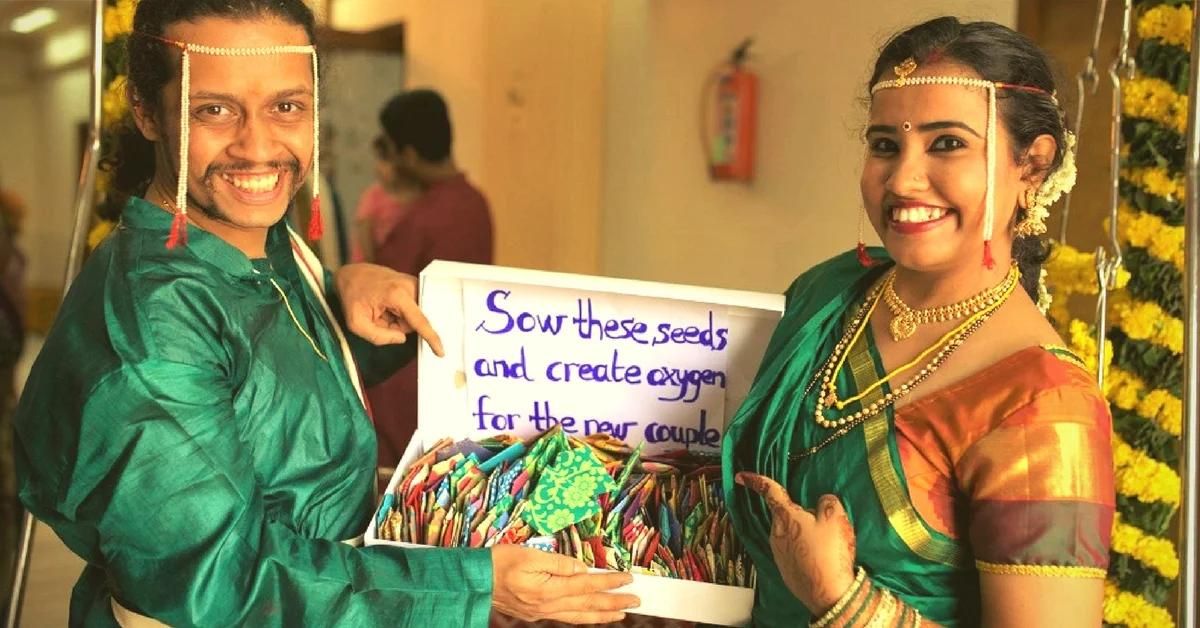
It’s wedding season and the time to make merry. Weddings involve a lot of planning and attention to detail. In the age of event planners, every aspect is taken care of to the T. These big, fat Indian weddings are a lot of fun for the guests and the families organising it.
Unfortunately, the wedding venues are strewn with paper cups, plastic bottles and waste after the festivities are over. This waste, along with the other wet waste, goes to the landfills. As weddings get larger, so does the wastage.
An article in Ground report states that an average Indian wedding generates around 200-300 kg of food waste, which is almost 20 percent of the food cooked. Cumulatively, it amounts to $14 billion worth of meals.
People have slowly started shifting to eco-friendly weddings where they consider the environmental cost and footprint. From using 19-year-old butter paper for packing to going completely plastic-free and composting/recycling all the waste produced at weddings, couples are going the extra mile to save the planet.
Here are some ways for you to plan a sustainable wedding, without compromising on the fun or grandeur:
- Ditch the paper invite
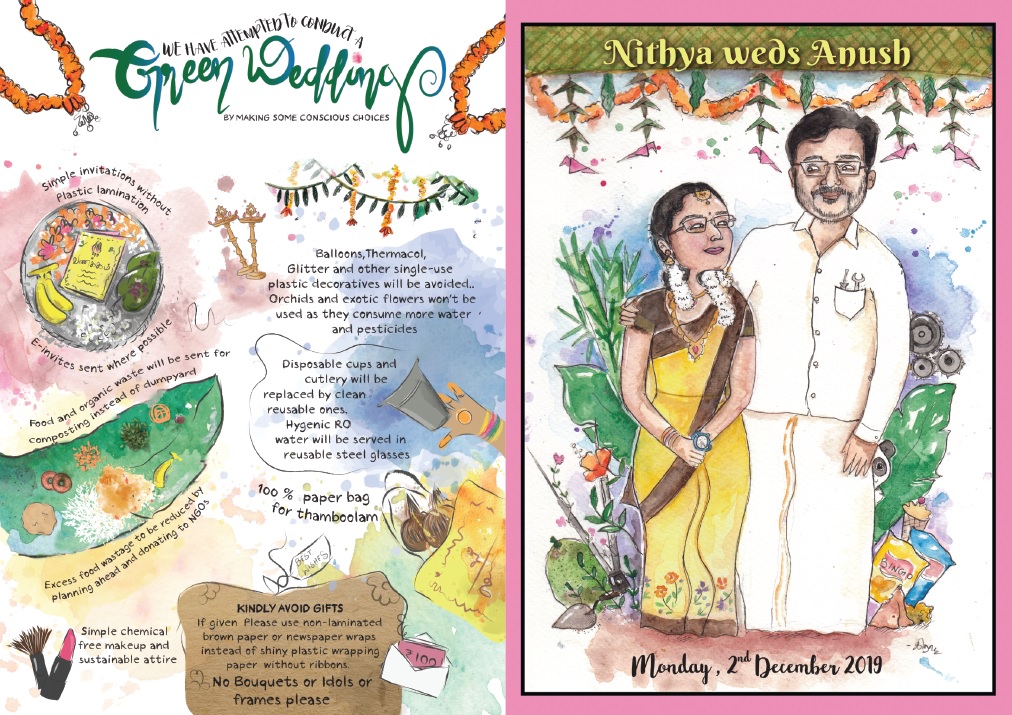
The first step in any wedding planning is the invitation. Many couples are choosing to completely go digital.They just send invites through Whatsapp or personally invite their friends and family.
If you must do some printed ones for the older relatives, go for seed paper invitations which then grow into plants.
Madhuri Balodi and Aditya Aggarwal’s invite requested people to come to the wedding using public transport, cycle or electric vehicles (EV)s. They also asked guests to bring plants instead of flowers.
Other couples are also encouraging guests to avoid any plastic packaging for the gifts and some even ask guests to contribute to environmental organisations of their choice.
- Let your Baraat be electric
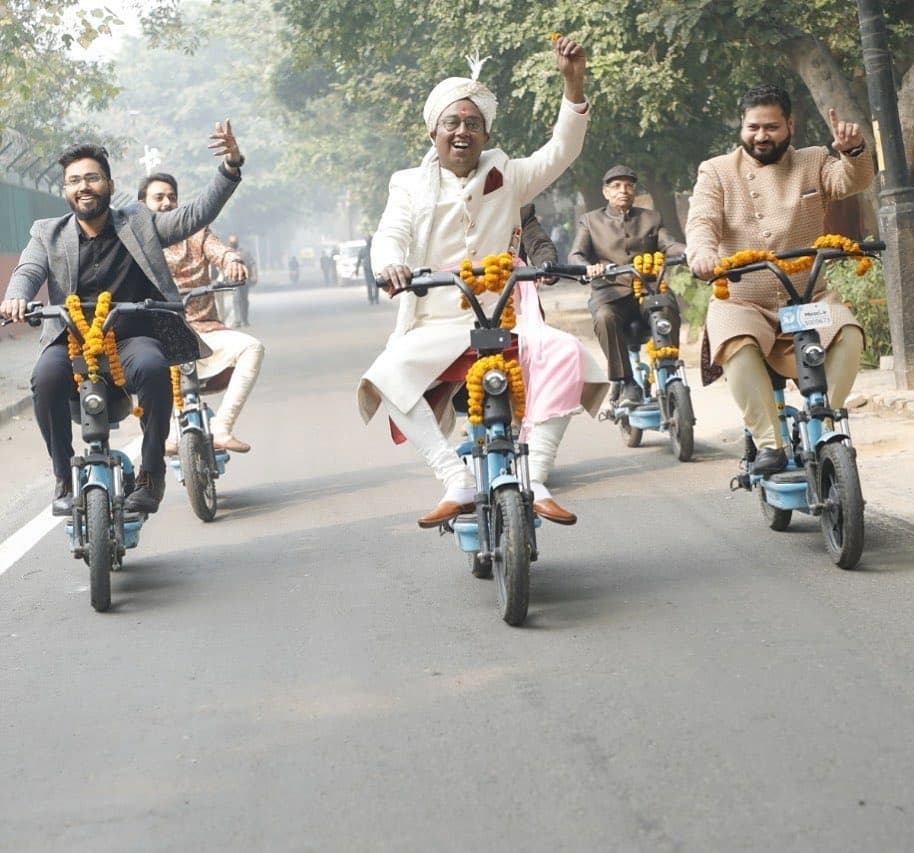
Grooms usually arrive on horseback or car, and these baraats many a times, are strewn with glasses used to drink alcohol or flowers. To reduce the carbon footprint, Aditya arrived for his wedding on an e-bike, while his friends cycled to the wedding.
After all, a sustainable wedding starts right from the entry. The 30-35 baraatis came on cycles or rented e-bikes.
Like him, Ashwin Malwade arrived for his wedding in an electric car too.
Some organisations are also picking up and recycling the waste that baraats generate.
- Go for minimal, reusable decor
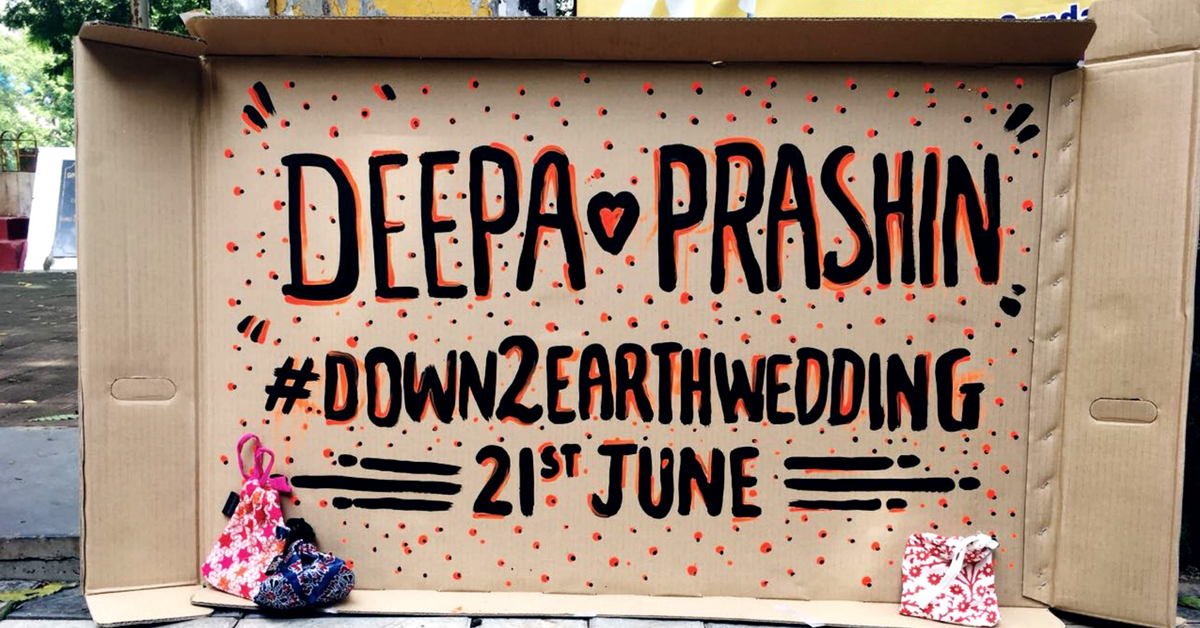
Make the decorations a fun process by involving your friends and unleashing your creativity. Use old cardboards and papers to create the decor of your choice.
Prashin Jagger and Deepa Kamath painted welcome boards using an old cardboard box, which looked attractive. They also had their friends make hand-made posters using old papers and cardboards to explain their intention.
“In fact, the main welcome board with our names was also made from a cardboard box of an LED TV purchased by a friend. With some pens and colours, he turned the board into something special inscribing our names–and it was beautiful,” Deepa added.
You can also decorate using newspapers and old glass bottles. Try to ensure that the decorations don’t have plastic and use few local, seasonal flowers. You can use colourful clothes to decorate.
- Rent cutlery/ Use banana leaves
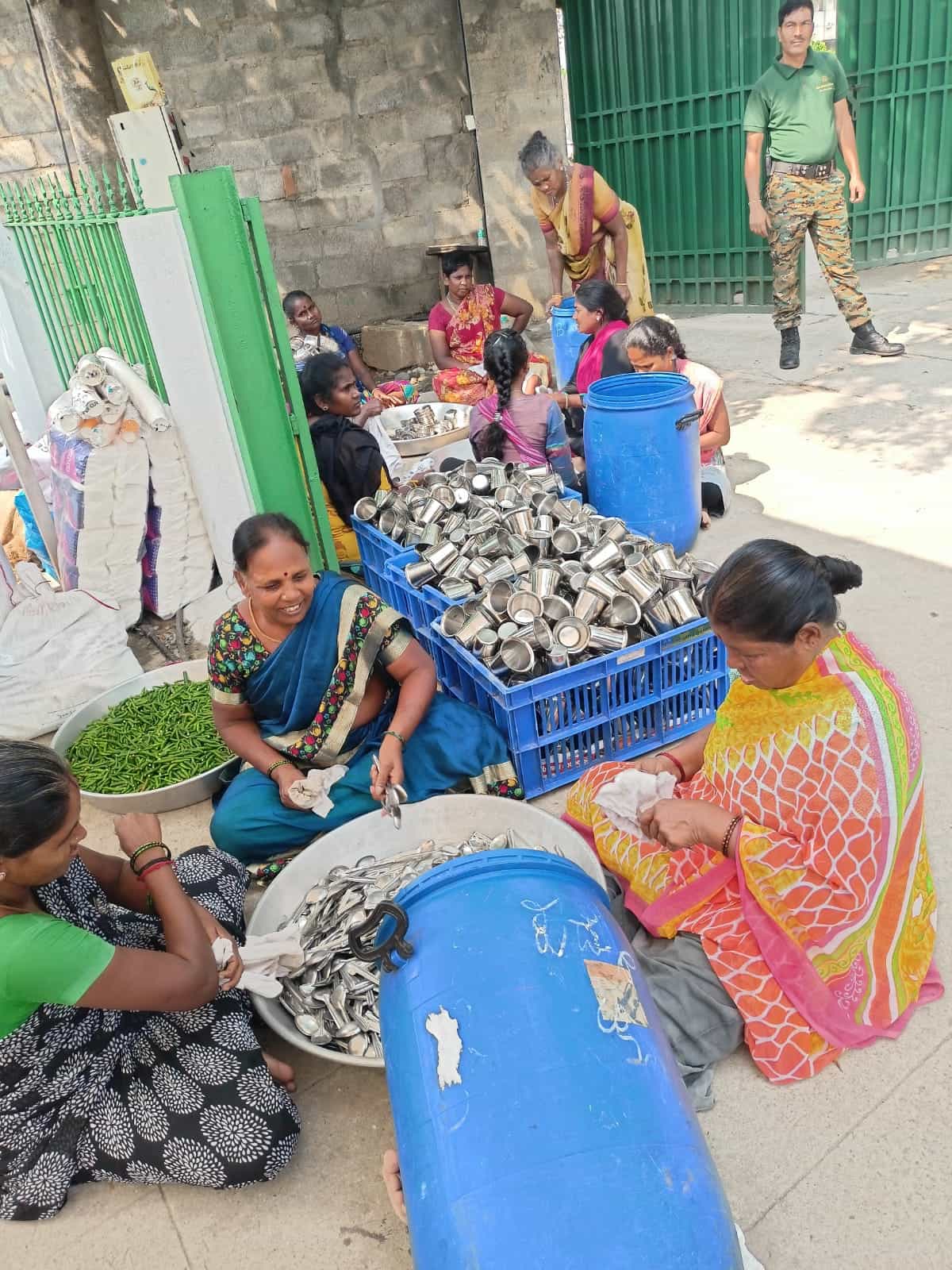
The biggest contributor to wedding waste is definitely food. To serve food, one needs different types of cups, spoons, forks, glasses and plates. Another big problem are the plastic bottles which most weddings have, which everyone considers more hygienic. However, the solution to all this is reusable cutlery.
Reusable cutlery can be hygienic too, as many weddings in recent years have shown. Many organisations across cities rent out cutlery for big events at a nominal cost, or free of cost.
Bengaluru mothers Anupama Harish and Charulatha R chose to rent steel cutlery from Adamya Chetana, a free cutlery bank in Bengaluru. They also served food on banana leaves and used steel plates only for the reception. In this wedding, by using steel cutlery, 30,000 single-use disposables were avoided.
If renting cutlery is not an option for you, ask your caterer to use glass, steel cups wherever possible or opt for edible cutlery. You can even use upcycled cutlery.
- Go for a simple menu
Wastage is increased when we have multiple cuisines and counters. Many are opting for local, seasonal ingredients and going for a simple menu high on taste. The trick is to go for dishes which involve less cutlery.
Prashin and Deepa’s wedding menu consisted of six dishes–made from seasonal vegetables, cooked simply and tastefully.
Another couple served healthy food, opting for healthy rice varieties and millets. They didn’t use white rice, maida, sugar or refined salt, using only naturally and organically grown items.
Couples are also using cloth napkins instead of tissues while serving food and making sure that the table on which food is served is either uncovered or covered in cloth to avoid rolls of paper being wasted.
- Wear family heirlooms
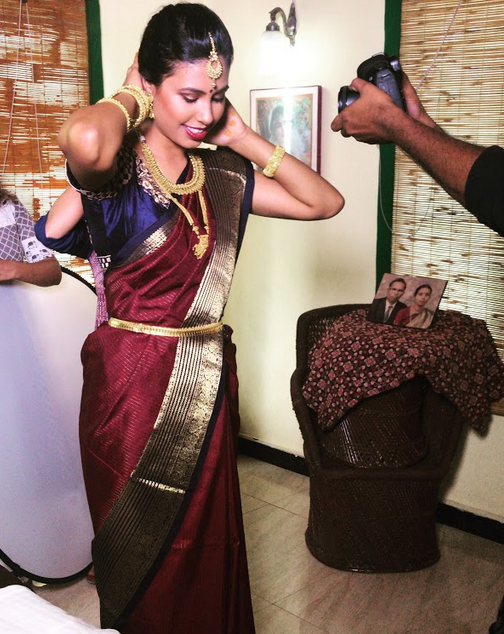
One of the most important decisions we make, after choosing our spouse, is what we are going to wear. We spend lakhs on our wedding trousseau and hardly find time or occasions to re-wear them.
When Veena Balakrishnan got married, she wore the same saree her grandmother wore for her wedding almost 50 years ago. She also wore her family jewels, choosing not to buy anything new.
Much like how Madhuri Balodi and Aditya Aggarwal went green with their choice of vehicles to arrive at the wedding, they also chose to buy their outfits for just Rs 2,500 and Madhuri has since reworn her saree five times after the wedding.
- Compost/ recycle the waste
As much as we want, one can’t completely avoid wastage. What’s important is managing it effectively to ensure that it does not pollute the environment.
By tying up with local corporations or tying up with organisations that compost, couples are ensuring that all the food waste is composted. At Veena’s wedding, the vegetable waste was turned into pulp and the used banana leaves and areca plates were sent to a compost pit. The flowers were turned into garden fertilisers and distributed to nearby societies.
At a wedding organised by Greenmyna, sustainability consultants, there was a compost pit kept where all the waste was being thrown. This also created awareness amongst the attendees.
At Ashutosh and Nidhi’s wedding in Bengaluru, Vasuki Iyengar, along with the Solid Waste Management Round Table (SWMRT) team handled all the waste. The wedding generated about 1,000 kg of wet waste, which was turned into 300 kg of compost.
The dry waste was segregated and sent for recycling.
- Give the leftover food to the needy
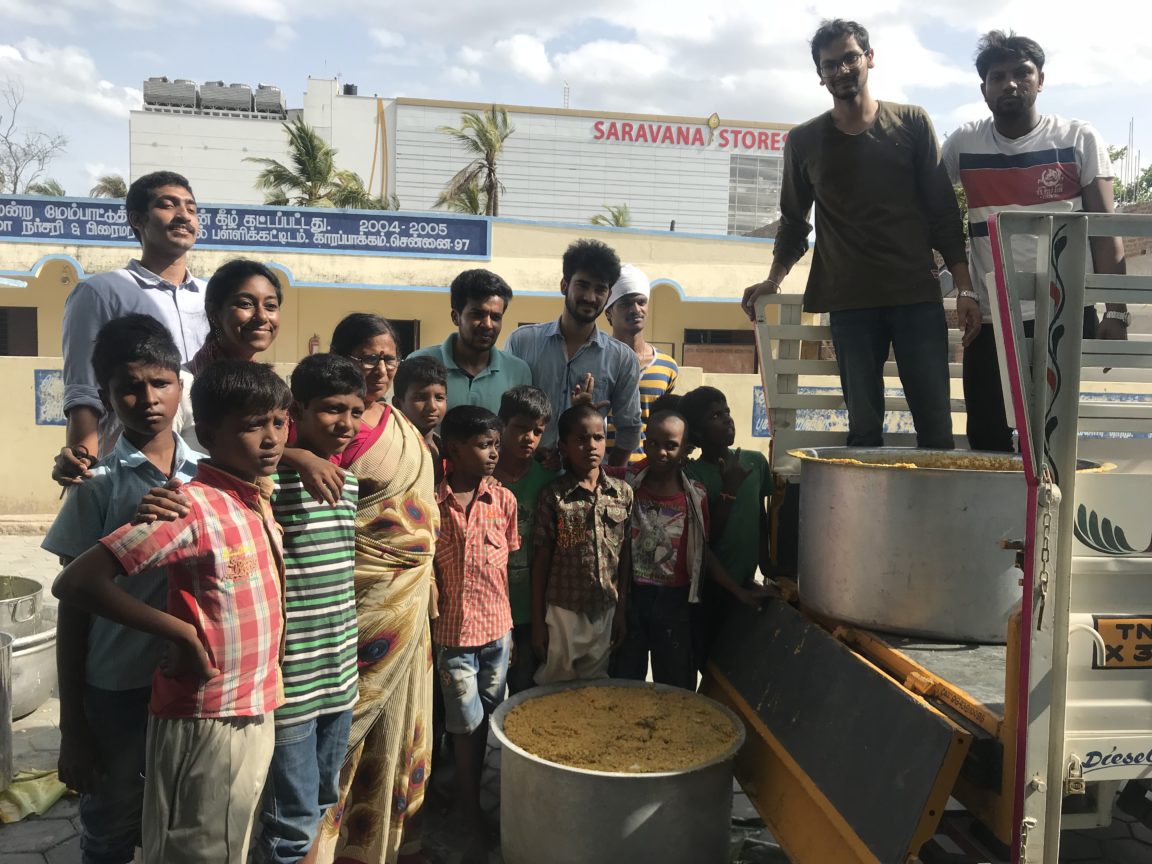
While we can’t do anything about the food leftover in people’s plates, we can definitely make sure that no cooked food goes to waste. Make your weddings more meaningful by tying up with organisations that serve food to the poor and ask your caterer to cook some extra food for this purpose.
At Veena and Vignesh’s wedding, the excess food and additional meals were distributed with the help of Robinhood Army, a renowned non-profit organisation that routes surplus food from restaurants to the less fortunate sections of society in cities across India and 12 other countries.
You can also distribute it at local orphanages/old age homes.
- Give meaningful return gifts
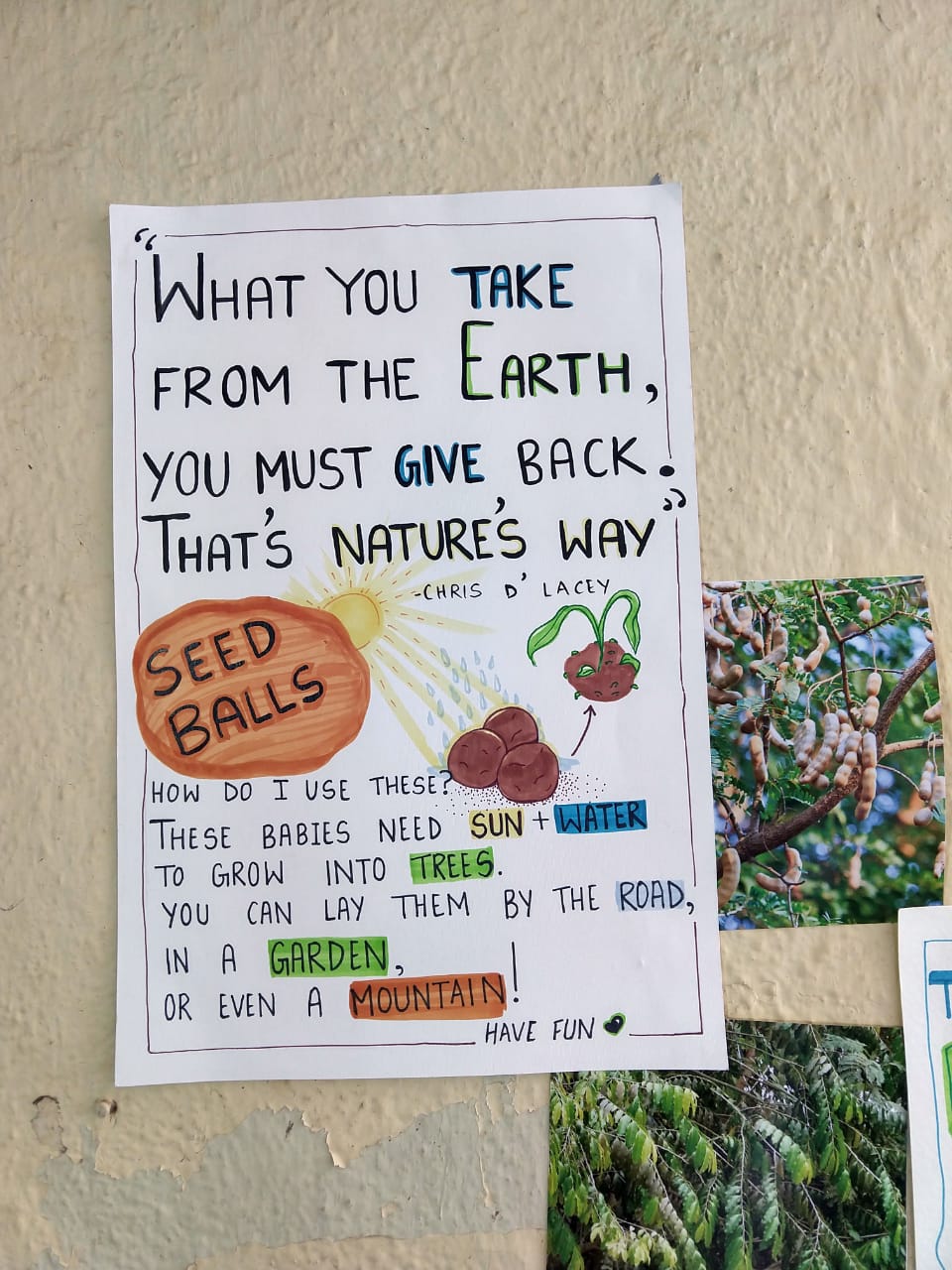
Another major part of weddings are the return gifts, which have become even more extravagant today. Couples are going green by gifting seed balls, saplings which people can just plant at home.
At her son’s wedding, Anupama gave everyone naturally dyed blouse pieces. She used a 19-year-old butter paper, which she found in her attic, to wrap the gifts. She also packed all the arishina kumkuma (turmeric and vermillion powder) that she had at home, using paper.
At Veena’s wedding, guests were given a scrub made out of filter coffee collected from local cafés, packed in old paper wrapping!
You can also go for reusable cloth or jute bags to give your gifts.
- Choose minimalism
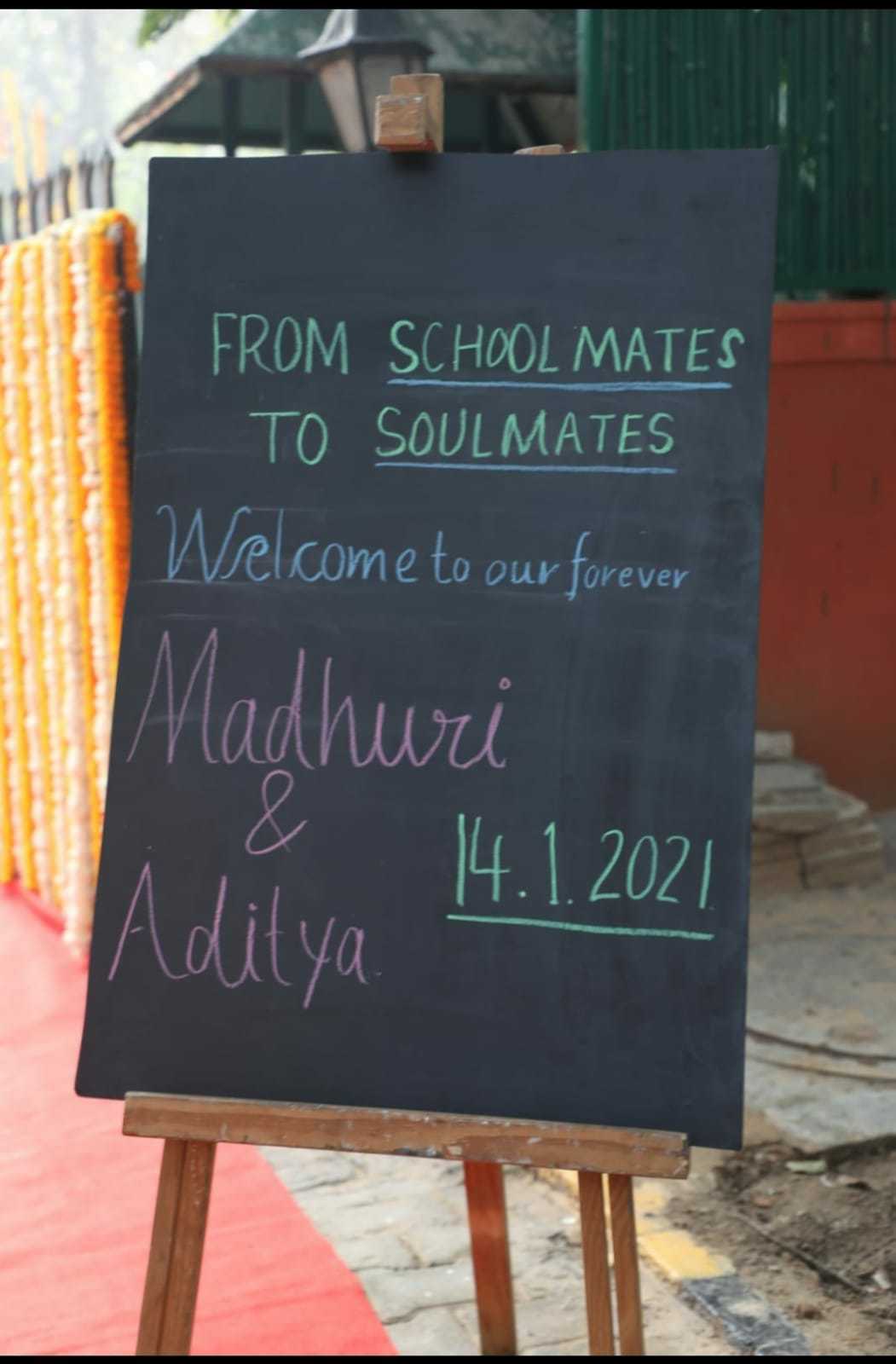
Right from the venue to the food and guest list, the best way to truly give back to nature is by going simple. You can call your local coconut sellers, chai sellers and pani puri sellers to set up stalls at the wedding, like Madhuri Balodi did. This ensures that there is no wastage.
You can also reduce the long ceremonies over many days. Veena and Vignesh’s wedding consisted of just one short ceremony.
Also, green weddings are cheaper than regular ones, thanks to the reduction of flowers, bottled water, thermocol etc. If you found our stories insightful, informative, or even just enjoyable, we invite you to consider making a voluntary payment to support the work we do at The Better India. Your contribution helps us continue producing quality content that educates, inspires, and drives positive change. Choose one of the payment options below for your contribution- By paying for the stories you value, you directly contribute to sustaining our efforts focused on making a difference in the world. Together, let’s ensure that impactful stories continue to be told and shared, enriching lives and communities alike. Thank you for your support. Here are some frequently asked questions you might find helpful to know why you are contributing?

Like Madhuri says, “Happiness is paramount, not the scale of the wedding.”
Edited by Padmashree Pande
This story made me
-
97
-
121
-
89
-
167















